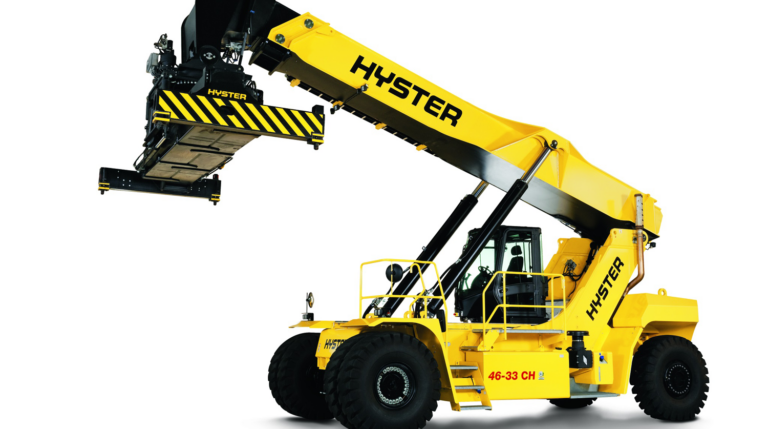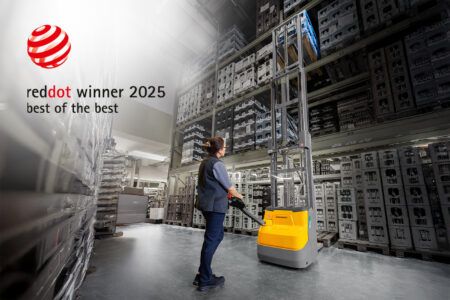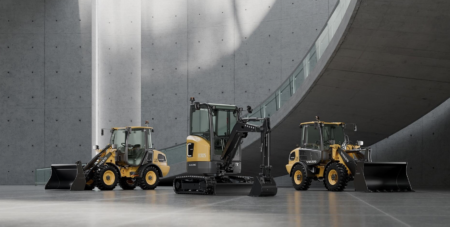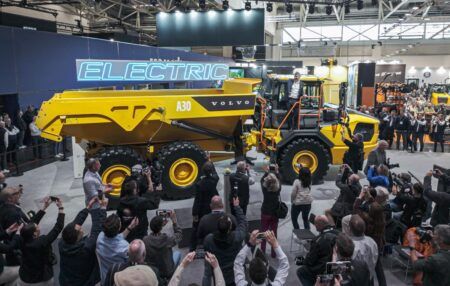Hyster is developing a hydrogen fuel cell-powered reach stacker for a European Horizon 2020-funded trial at a port in Spain.
The H2Ports project working out of the Port of Valencia will be the first European port to test the zero-emission truck, which is expected to enter operation in 2021.
Environmental benefits expected from the vehicle include low noise levels, while Hyster also predicts a reduction in energy costs and vehicle maintenance costs thanks to the elimination of the engine, transmission and other mechanical-driven components.
“As the first of its kind, we expect the new Hyster reach stacker will be able to support continuous operations while providing zero emissions and achieving comparable full shift performance to a conventional IC reach stacker,” said Jan Willem van den Brand, director of big truck product strategy and solutions at Hyster Europe. “The technology will help evolve this industry into a low carbon and zero-emission sector.”
The demonstration site for the H2Ports project will be the MSC Terminal Valencia (MSCTV), which can receive today’s biggest container ships and has 260,000m² of container stacking space.
Hyster-Yale Group is participating in the H2Ports project alongside the Port Authority of Valencia, the Valenciaport Foundation, the National Hydrogen Center, MSC Terminal Valencia, Grimaldi Group, Atena, Ballard Power Systems Europe and ENAGAS.
The project has received funding from the Fuel Cells and Hydrogen Joint undertaking (FCHJU) which also includes the development of an electric yard tractor and the installation of a mobile hydrogen supply station.
“Achieving zero emissions for container handling equipment at seaports is a substantial challenge,” said Van den Brand. “The highly demanding and varied duty cycles in these intense operations make battery recharging time a critical factor. These and other technical limitations have obstructed the electrification of container handlers or large lift-trucks until now.”





